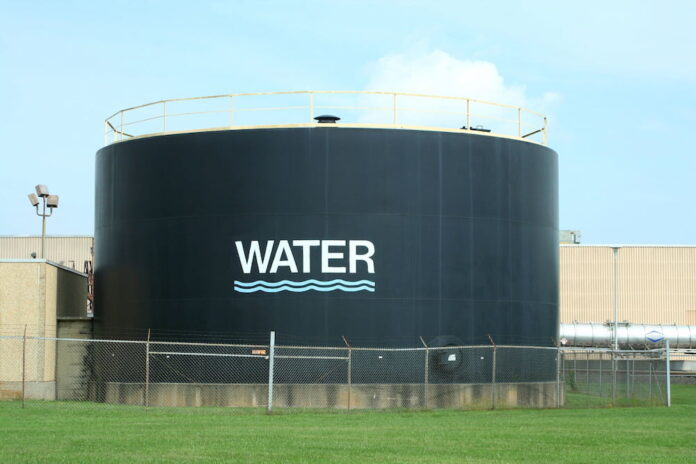In the operations of healthcare institutions, an often overlooked yet critical component is water. Serving multiple roles, from hygiene to patient care, it’s a resource that must maintain its balance. With an escalating need to have uninterrupted supply, water storage solutions have become integral to healthcare facility management.
This article explores the multifaceted benefits of water storage systems in healthcare settings. Read on to discover how they can significantly impact healthcare services, patient care, and overall facility efficiency.
1- Improved Emergency Preparedness
Water is as important as any other medical supply in a healthcare facility when disaster strikes. It’s necessary for sterilizing and purification equipment, maintaining hygiene, and even directly in patient care. Without a doubt, a constant water supply is crucial in emergencies and disaster response.
That’s where water storage solutions, like tanks from a water tank factory, come into play. They’re designed to safely hold large volumes of water, safeguarding against shortages during emergencies. With them, you’re prepared to continue delivering high-quality healthcare services, even if there’s a disruption in your regular water provision.
Consider the case of hospitals faced with natural disasters like hurricanes or earthquakes. They’ve often had to function without utilities for several days. Storage systems have proven invaluable in these situations, as critical services don’t stop due to lack of water.
2- Increased Reliability and Assurance
Water storage solutions are like a security blanket for healthcare facilities. They provide a constant supply, even when the primary source experiences disruptions. That’s because they’re designed to store enough water to meet the facility’s needs for a defined period.
Water storage solutions provide uninterrupted water supply and bolster trust among patients, staff, and stakeholders. This confidence arises from the facility’s preparedness to manage disruptions effectively and maintain the quality of care. Therefore, these solutions contribute significantly to a resilient healthcare system that upholds consistent services, regardless of circumstances.
3- Cost Effectiveness
Water disruptions in medical facilities aren’t merely inconveniences; they’re expensive setbacks. Unplanned interruptions can halt surgeries, impede sterilization processes, and compromise patient care, contributing to spiraling costs. Furthermore, issues related to poor water quality, such as disease outbreaks, can lead to additional expenses and potential lawsuits.
Investing in water storage solutions is cost-effective scenario in the long run. These solutions protect your facility from the financial impact of disruptions, enhancing smooth operations even during crises. They also give you control over water quality, helping you avoid unnecessary healthcare costs. For forward-thinking healthcare institutions, this makes it a financially sound decision.
4- Better Control Over Water Quality
In any healthcare facility, the importance of water quality can’t be overstated. It’s integral to maintaining hygiene, preventing infections, and the safe operation of various medical devices. Compromising water quality could lead to many issues, including patient health risks and potential operational setbacks.
However, water storage solutions are designed to mitigate such risks. They’re designed not just to store but also to safeguard water quality, preventing the growth of harmful microorganisms and the risk of contamination. By integrating such systems, healthcare centers can assert more control over their water quality, helping to uphold high standards of care and safety.
5- Sustainability And Environmental Impact
Water storage solutions serve as one of the tools aiding healthcare facilities to reach their green goals. They’re instrumental in reducing the environmental impact associated with continuous water sourcing.
Recycling water through these solutions is a critical strategy in water conservation. They’re designed to collect, store, and treat water for various non-potable uses like irrigation, cooling, and flushing. This reduces the demand for freshwater sources and mitigates the impact on local ecosystems.
But it’s not just about conservation. These solutions also reduce the energy consumed in the water supply, lessening the carbon footprint. They’re a win-win for medical centers, addressing their operational needs and environmental responsibilities.
6- Independence From Local Supply
Healthcare facilities can’t afford to rely only on local water supplies. These supplies may become compromised or unreliable during local disasters or maintenance. Thus, having independent storage solutions is vital.
Water storage systems give these centers the autonomy they need. They’re in control of their water reserves, ensuring that critical operations don’t come to a standstill. It’s a step toward self-reliance that makes a world of difference.
In essence, it’s about security and peace of mind. With a proper water storage solution, there’s assurance that the facility can operate seamlessly, regardless of what’s happening with the local supply. That’s the kind of independence these facilities need.
Conclusion
Water storage solutions provide critical benefits to healthcare facilities, facilitating uninterrupted supply and better disaster preparedness while enhancing water quality control. These systems foster operational efficiency and facilitate considerable cost savings.
With the added benefit of supporting sustainability goals, these solutions underline their wide-ranging advantages. Therefore, medical centers should prioritize integrating robust solutions for enhanced patient care, operational efficiency, and sustainability.
Read Also
- How to Drive Growth Through Customer Centricity in HealthcareThe world of healthcare is changing in big ways. Consumers are now stepping up and taking charge of their health journeys. This change is happening now for important reasons. The U.S. health and wellness market is huge, projected to be over $6 trillion in 2025. This growth is fueled by rising out-of-pocket costs and more… Read more: How to Drive Growth Through Customer Centricity in Healthcare
- Maximizing Digital Reach for Podiatry Clinics in Local HealthcareMaximizing Digital Reach for Podiatry Clinics in Local Healthcare As the healthcare industry evolves, mobile marketing becomes indispensable for practitioners. Podiatry clinics, focusing on foot and ankle care, must adapt to digital strategies to engage patients effectively. Implementing tailored SEO practices is crucial for these clinics to thrive in an increasingly competitive market. Digital marketing… Read more: Maximizing Digital Reach for Podiatry Clinics in Local Healthcare
- Leveraging Virtual Medical Assistants to Maximize Operational Efficiency in HealthcareIn the increasingly complex and fast-paced world of healthcare, operational efficiency is critical. Doctors and healthcare administrators are faced with numerous challenges, from managing patient scheduling and medical billing to adhering to stringent regulatory compliance and insurance claims processing. These tasks, while essential, often divert time and resources away from the core mission of providing… Read more: Leveraging Virtual Medical Assistants to Maximize Operational Efficiency in Healthcare
- Optimizing CT Protocols: The Hidden Key to Efficiency and Cost Savings in RadiologyIntroduction: Why CT Protocol Optimization Matters Computed Tomography (CT) is a cornerstone of modern diagnostic imaging, providing critical information across nearly every medical specialty. However, maximizing the value of CT — both clinically and financially — requires more than just advanced hardware. The real secret lies in the optimization of CT protocols. When CT protocols… Read more: Optimizing CT Protocols: The Hidden Key to Efficiency and Cost Savings in Radiology
- Hospital Discharge Accuracy Improves With Daily Advisor InvolvementThe hospital discharge process has a big effect on patient recovery, hospital efficiency, and finances. It requires careful planning and clear communication between team members to make sure patients get the right care when they leave the hospital. Having physician advisors involved at this stage can improve the discharge process by spotting problems that need… Read more: Hospital Discharge Accuracy Improves With Daily Advisor Involvement
- Understanding Clinical Trials: What to Learn and the RoadblocksClinical trials are research studies conducted to determine the efficacy of medical, surgical or behavioral interventions. They are the most commonly used way that researchers assess whether new treatments, drugs or medical devices are safe and effective for use in humans. There are strict protocols governing these studies, and all of this is done in such a… Read more: Understanding Clinical Trials: What to Learn and the Roadblocks







